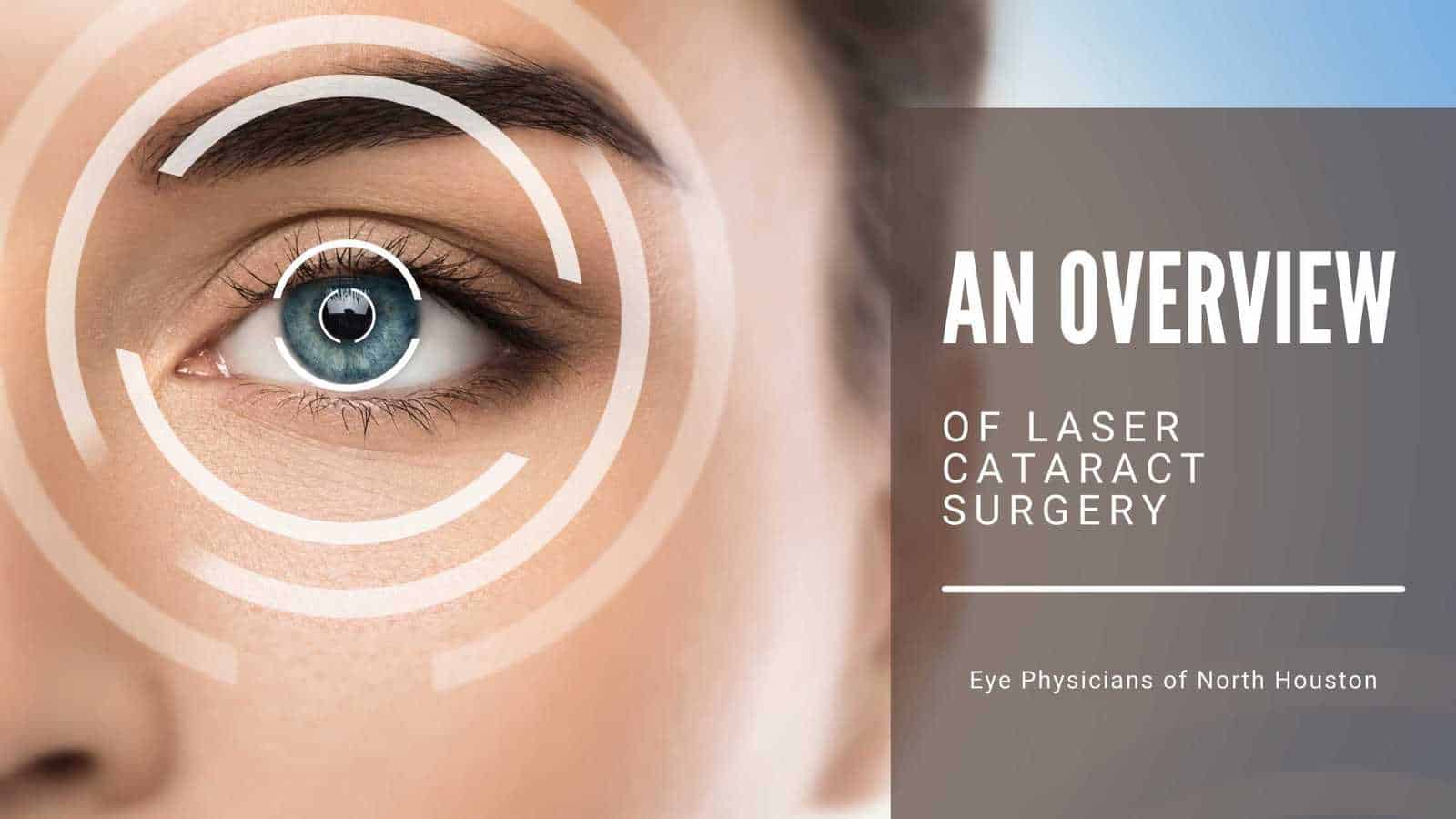Cataracts are often a natural part of aging. They occur when the lens in your eye becomes cloudy caused by the breakdown of proteins, over time, causing blurry vision along with other symptoms. While there is no medical treatment for this eye disorder, cataracts can be surgically removed if they interfere with your daily activities by a board-certified ophthalmologist during laser cataract surgery, which is a bladeless procedure. The procedure is completely safe and one of the best ways to improve your vision and, ultimately, your quality of life.
Unlike traditional cataract surgery, this procedure is performed at Eye Physicians of North Houston using a LenSx® Femtosecond Laser System for improved precision. The system captures high-resolution images of your eyes, providing accurate measurements for the artificial intraocular lens (IOL), along with the exact location, size, and depth for the incision. In addition, the laser emits ultrasonic energy to break down the cataract, enabling your ophthalmologist to remove it efficiently. The cataractous lens is replaced by an IOL made of either medical-grade acrylic or silicone material.
What Are Cataracts?
As you age, you may develop cataracts in one or both eyes, impacting your ability to see clearly. According to the National Eye Institute, they are a common age-related eye disorder, affecting more than half of American adults aged 80 and older.
A cataract is a clouding of your eye’s natural lens – just behind the iris – that in a healthy eye should be clear so that it can focus light onto the retina at the back of the eye and promote good vision. However, after age 40, you may notice changes in your eyesight. According to the American Academy of Ophthalmology (AAO), that is when the normal proteins in the lens begin to break down.
However, aside from age, there are other reasons for the development of this condition, including but not limited to having a family history of cataracts or being diagnosed with specific medical conditions. It is also possible to develop a cataract if you smoke, suffer an eye injury, use certain medications, or spend a lot of time in the sun.
The symptoms of cataracts, particularly as they progress, include:
- Blurry vision
- Light sensitivity
- Night blindness
- Seeing double or ghosted images
- Contact lens or eyeglass prescription changes
- Increasing changes in the way you view colors
This eye disorder, like many others, can only be accurately diagnosed after a dilated eye examination. Should your ophthalmologist diagnose you with this condition, they can then discuss ways to prevent their progression and laser cataract surgery with you, as the latter is the only viable treatment option available for cataracts. This laser procedure is a safe way to restore your vision.
Visit an Eye Doctor to Discuss Laser Cataract Surgery
With the most advanced technologies and techniques, and more than 40 years of ophthalmology experience, the board-certified ophthalmologists at Eye Physicians of North Houston provide compassionate and comprehensive patient-centered eye care in Houston. Preventing, diagnosing, and treating eye disorders is done in a small, intimate clinical setting, where patients can continually enjoy visiting and sharing their personal lives with our physicians and staff for many years to come.
Our conveniently located ophthalmology practice, open Monday through Friday from 8:00 am to 5:00 pm, diagnoses and treats eye disorders like cataracts and glaucoma for thousands of patients each year. We invite you to schedule an eye examination and discuss laser eye surgery with one of our ophthalmologists in North Houston today at (281) 893-1760. At Eye Physicians of North Houston, we love what we do and are grateful for the opportunity to take care of your eyes!
Resources:
Boyd, Kierstan. “Traditional Cataract Surgery vs. Laser-Assisted Cataract Surgery.” American Academy of Ophthalmology (AAO), April 19, 2021.
Boyd, Kierstan. “What Are Cataracts?” American Academy of Ophthalmology (AAO), September 13, 2021.
Cataracts.” National Institutes of Health: National Eye Institute.

